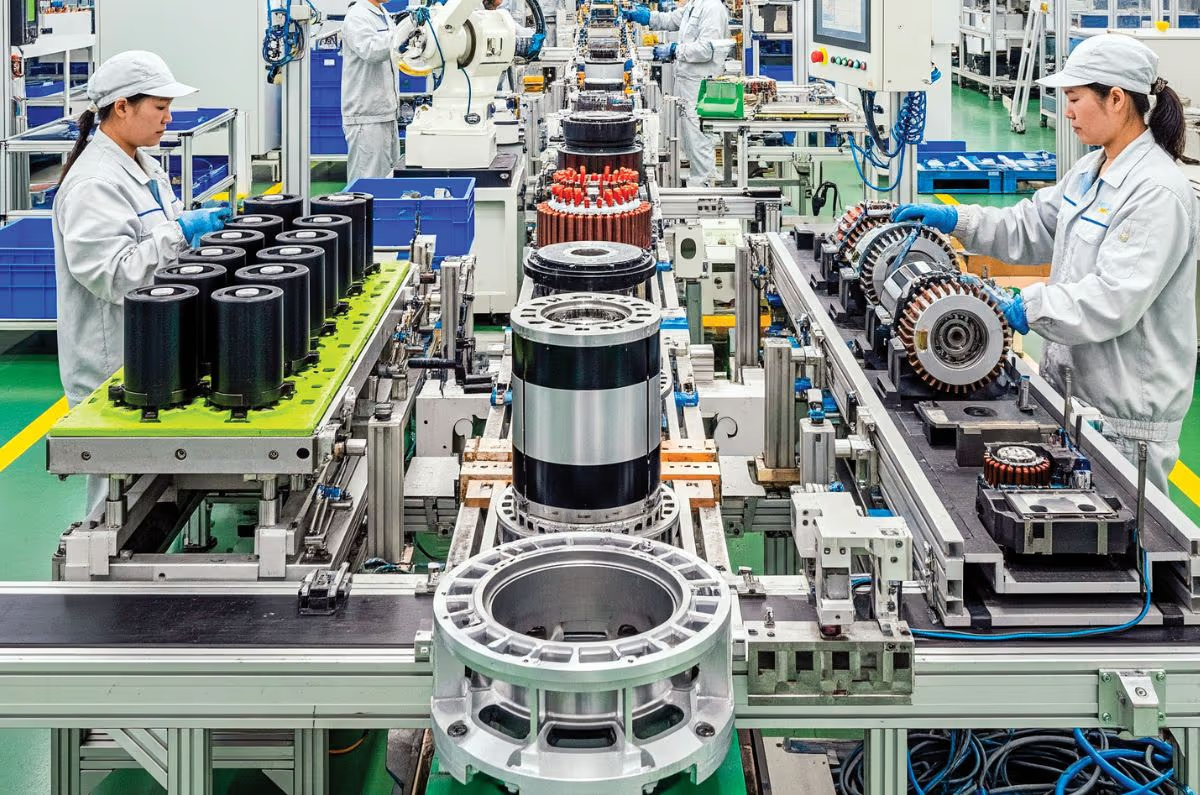 |
|
The recent tightening of export controls by China on rare earth minerals is poised to significantly impact the global automotive industry, with India being particularly vulnerable. This action, widely viewed as a retaliatory measure against US tariffs, has the potential to disrupt car production lines across the globe, as these minerals are essential components in various automotive systems. India, having imported approximately 2,850 tonnes of rare earth permanent magnets and magnet alloys from China last year, ranks as the fifth-largest importer, highlighting its dependence on Chinese supply. The ramifications of this supply disruption extend beyond just electric vehicles (EVs), affecting the production of internal combustion engine (ICE) cars as well, due to the widespread use of these magnets in engines, sensors, steering assemblies, and speakers. The situation is further complicated by the fact that China has effectively monopolized the rare-earth supply chain, controlling 60 percent of the production and about 90 percent of the global refining capacity, giving it substantial leverage in the market. The newly implemented procedures for import approvals add another layer of complexity and potential delay. The process now requires an end-use declaration confirming that the magnets will not be used for military purposes, along with certifications from multiple Indian ministries and the Chinese embassy, as well as the final export clearance from Chinese authorities, making it a bureaucratic hurdle that can significantly slow down the import process. This complex procedure entails seeking endorsements from the Directorate General of Foreign Trade (DGFT) under the Ministry of Commerce, followed by the Ministry of External Affairs. These endorsements are then submitted to the Chinese embassy for an endorsement or token number, which is shared with the supplier or exporter in China, who then forwards it to their provincial government. After provincial approval, the application proceeds to China’s commerce ministry, which ultimately decides whether to grant the license. Such a protracted and multi-layered approval process raises serious concerns about the timeliness and reliability of rare earth supplies for the Indian automotive industry.
The Indian automotive industry is already feeling the pressure, with major players like Bajaj Auto and TVS Motor issuing warnings about potential production disruptions. According to Rakesh Sharma, executive director of Bajaj Auto, existing supplies and stocks are dwindling, and if shipments do not resume soon, July production will be severely affected. Reports indicate that auto industry manufacturers have already alerted government officials about the possibility of production stalling within days. The government is responding to these concerns by planning to send a delegation of automotive leaders to China to negotiate the restoration of supplies. HD Kumaraswamy, the minister of heavy industries, has indicated that the delegation will be dispatched in the near future, although government officials will not be part of the delegation. This initiative reflects the seriousness with which the Indian government is treating the matter, recognizing the potential economic repercussions of a prolonged supply disruption. It also highlights the crucial need for diversification of supply chains and the development of alternative sources for these critical materials. The situation is not unique to India, as other nations with significant automotive sectors have also initiated requests for meetings with Chinese officials, reflecting a shared anxiety about the potential impact of China's export controls. The dependence on a single source for critical components like rare earth magnets poses a significant risk to the global automotive industry, underscoring the urgency for exploring alternative materials and technologies.
In response to the supply challenges, several auto component makers in India and across the globe are actively exploring alternatives to rare-earth magnet motors. This includes evaluating alternative materials like ferrite, different grades of magnets, different technologies, and different supply sources. Vivek Vikram Singh, CEO of Sona Comstar, has stated that they are working to speed up the import process while also evaluating alternative materials. The development of ferrite-based motors is being touted as a promising solution, offering both superior performance and a 100 percent indigenous supply chain. Ankit Somani, co-founder of Conifer.io, advocates for increased investment in ferrite-based motors, emphasizing their potential to reduce dependence on foreign sources. However, the transition to alternative materials and technologies is not without its challenges, particularly in high-performance applications such as electric vehicles. Issues such as lower power density, lower efficiency, and increased size and weight of motors remain significant concerns. The experience of Sona Comstar, where the technology was sound but the efficiency did not meet the required levels, underscores the difficulties in achieving comparable performance with alternative materials. This highlights the critical lesson that complete reliance on any one external source is no longer viable in an increasingly unpredictable global landscape. The pursuit of diversification, technological innovation, and the development of indigenous capabilities are essential strategies for mitigating the risks associated with supply chain vulnerabilities and ensuring the long-term sustainability of the automotive industry. The Indian government and automotive industry must collaborate to promote research and development, foster partnerships with alternative suppliers, and implement policies that encourage the adoption of new technologies. Only through a concerted effort can India reduce its dependence on China and secure its position in the global automotive market.
Source: Rare earth supply puts Indian car production 'on notice'
